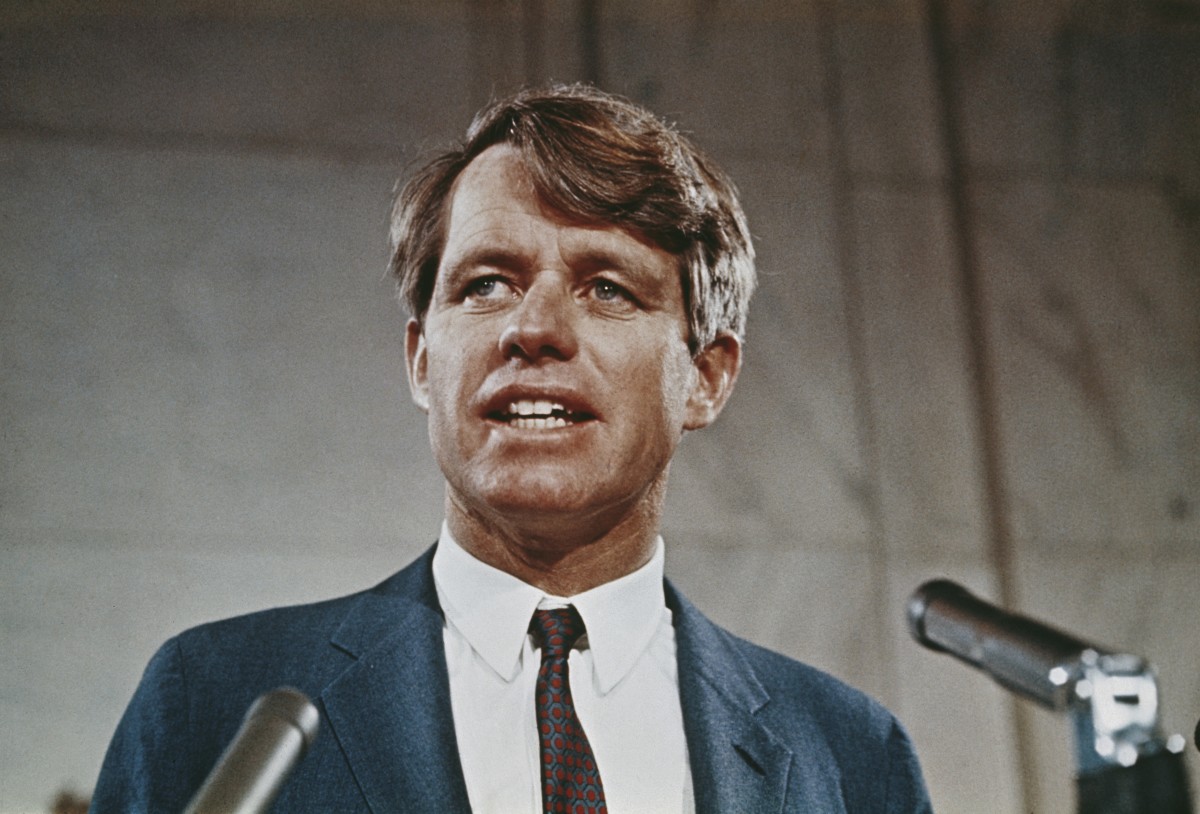
A scion of an American political dynasty, Robert F. Kennedy, or RFK, led a short, but distinguished life as a public servant during a time of great turmoil for the country. After successfully managing the presidential campaign for his older brother, John F. Kennedy, RFK was appointed attorney general in 1960. During his time in Washington, he fought organized crime and was an outspoken advocate for civil rights.
After JFK's assassination, he continued to serve into the subsequent Lyndon B. Johnson administration. In 1965 he joined Congress as a Senator, representing the state of New York. His opposition towards American involvement in the Vietnam War earned him the reputation as a "peace candidate." However, in 1968, while campaigning for the Democratic Party's presidential nomination, RFK too was assassinated, just six months shy of his 43rd birthday.
Two decades earlier, in 1948, RFK took his first steps into a legal career by enrolling in the University of Virginia’s Law School. During his time there, he showed both his talent for public leadership, but also his ability to invite conflict into his life. For instance, while a student, Kennedy got into trouble for numerous traffic violations, and was once involved in a 90 mph police chase that led to the law student being charged with reckless driving, while not in possession of his license.
On the other hand, it was during this seminal time that RFK's political acumen began to shine as well. In 1950, at the start of his third and final year, he was elected president of the Student Legal Forum, a venerated organization at the Law School, known for inviting high-profile speakers to the Charlottesville campus. Among the guests he recruited was Ralph Bunche, an African-American who previously won the Nobel Peace Prize and was involved in the founding of the United Nations. Making history, RFK and other law students convinced the university president to allow for an integrated audience, which broke with longstanding policy.
Over the years, Kennedy remained connected to his alma mater. A member of the Class of 1951, he joined his brother JFK in returning to campus when the UVA Law School held its first Law Day for students, alumni, and their families. Then five years later, in 1963, barely ten years since graduation, RFK returned as the country's fresh-faced attorney general. Addressing law students and faculty, he delivered a speech called, "Government Under Law in a Dynamic Age," which called for government to be, "based on the active representative participation of the people."
But it was in 2007 when one of UVA's most famous alumni was honored with the creation of the Robert F. Kennedy '51 Public Service Fellowships. Eligible to graduates working for a year in qualifying public service employment, the sizeable fellowship provides a $40,000 salary in RFK's historic name. Opening new doors to public service, the fellowships ensure UVA's commitment to producing top students, while also honoring the man who sacrificed everything for his country.
